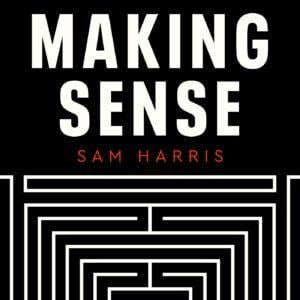Intro
In this episode of “Ted Talks Daily,” computer scientist Stephen Wolfram delves into the concept of computational thinking and its implications for artificial intelligence (AI), the universe, and everything in between. He explores the power of computation, the nature of space and matter, and the role of observers in shaping our understanding of physics. Wolfram also discusses the potential of generative AI and the importance of computational language in unlocking new possibilities for human and AI cognition.
Main Takeaways
Expressing Intelligence in Computational Terms
- Computer scientist Stephen Wolfram explores the possibility of expressing all intelligence in computational terms.
- Wolfram discusses the power of computation and its impact on science and technology.
The Computational Nature of the Universe
- Wolfram asks if computation is ultimately what’s underneath everything in our universe.
- He explains how space and matter are made of discrete elements and defined by a network of relations between these elements.
- Quantum mechanics emerges as the story of how branching minds perceive a branching universe.
Paradigms for Modeling the World
- Four paradigms for making models of the world can be distinguished by how they deal with time: antiquity, mathematical formulas, irreducible computation, and multi-computational with many threads of time.
Computational Language and AI
- Generative AI can be used to explore the Ruliad and sample possible rules during Ruliology.
- Most of what is found in Rulial Space doesn’t connect with things we humans understand or care about yet.
- The big achievements of AI in recent times have been about making systems that are closely aligned with us humans.
The Power of Computational Language
- The development of computation gave us a whole new level of power to create new things and explore the world in computational terms.
- The goal is to formalize our knowledge about the world in computational terms and create a language for computational thinking.
- Computational language opens up something much bigger and broader than programming languages, allowing us to operationalize everything we can think about in computational terms.
- Computational language gives people and AIs a superpower to fluently think in computational terms and compute new facts.
The Limits of Science and Predictability
- The world won’t always be explainable or predictable in simple human or mathematical narratives, and computational irreducibility shows us that science is eating itself from the inside.
- Science cannot predict everything, computational irreducibility shows this.
- We have to live the steps to find out what a system will do.
- AI’s full computational potential will have computational irreducibility, which we can’t predict.
Defining Goals and Journeys
- Automation opens up more directions to go in the Ruliyad, but it’s a question of what we humans want.
- The key to defining what we want is computational language.
- Our physics depends on how humans sampled the Ruliat.
Computational Thinking and Superpowers
- Our universe is computational.
- Computational language lets us define our goals and journeys.
- Power and depth of Ruliyad is accessible to everyone.
- Learning to harness computational superpowers starts here.
Summary
Expressing Intelligence in Computational Terms
Stephen Wolfram explores the possibility of expressing all intelligence in computational terms. He highlights the power of computation in driving advancements in science and technology.
The Computational Nature of the Universe
Wolfram suggests that computation may be the underlying foundation of the universe. He explains how space and matter can be understood as discrete elements defined by their relationships. Quantum mechanics emerges as a framework for understanding the perception of a branching universe.
Paradigms for Modeling the World
Wolfram categorizes four paradigms for modeling the world based on their treatment of time. These paradigms range from antiquity to mathematical formulas, irreducible computation, and multi-computational with many threads of time.
Computational Language and AI
Generative AI is explored as a tool for exploring the Ruliad and sampling possible rules in Ruliology. However, much of what is found in Rulial Space may not yet align with human understanding. Recent achievements in AI have focused on creating systems that closely align with human cognition.
The Power of Computational Language
Computation has empowered us to create and explore the world in new ways. Wolfram emphasizes the importance of formalizing knowledge in computational terms and developing a language for computational thinking. Computational language enables fluent thinking and computation of new facts for both humans and AI.
The Limits of Science and Predictability
Wolfram highlights the limitations of science and predictability. The world is not always explainable or predictable through simple narratives, and computational irreducibility challenges our understanding. Science cannot predict everything, and we must live the steps to uncover a system’s behavior, even for AI.
Defining Goals and Journeys
Automation opens up new possibilities in the Ruliyad, but the direction depends on human desires. Computational language plays a key role in defining our goals. Our understanding of physics is influenced by how we sample the Ruliat.
Computational Thinking and Superpowers
Wolfram asserts that our universe is inherently computational. Computational language allows us to define our goals and journeys, granting us access to the power and depth of the Ruliyad. Learning to harness computational superpowers is a crucial step for individuals and AI alike.
Conclusion
Stephen Wolfram’s exploration of computational thinking and its implications for AI and the universe sheds light on the power and potential of computation. By embracing computational language and understanding the limits of predictability, we can unlock new realms of knowledge and shape our goals and journeys in the computational age.
